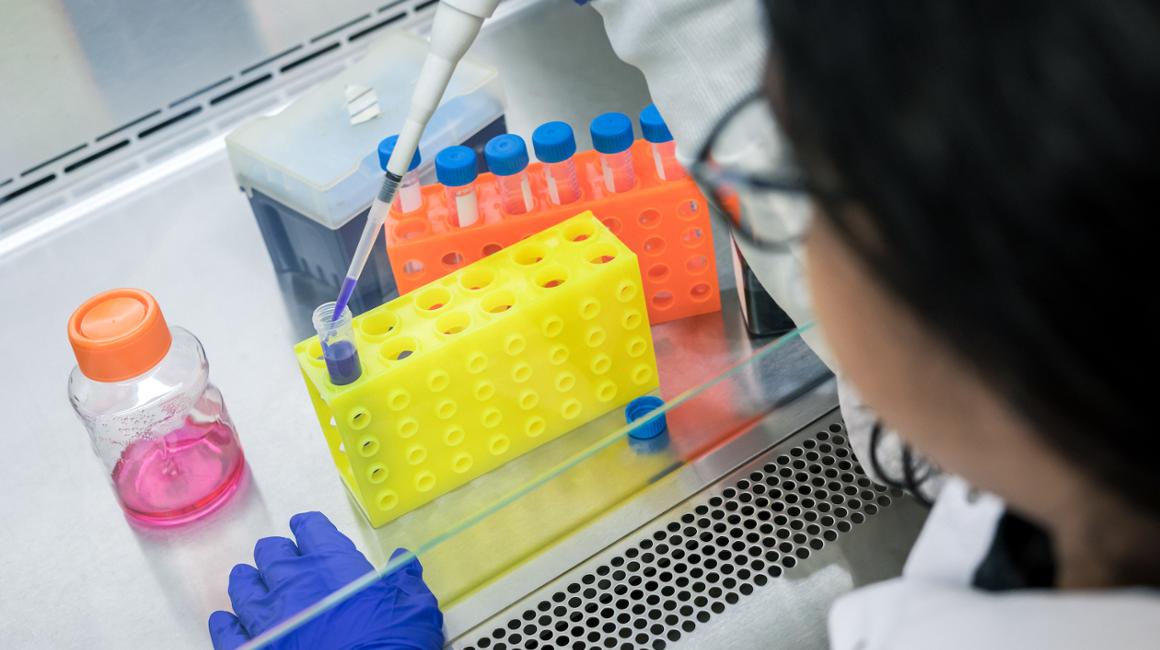A drug that targets a rare and difficult to treat brain tumor found in children has received a Rare Pediatric Disease designation from the U.S. Food and Drug Administration, helping pave the way for future trials.
Created at Duquesne University, the FLAG-003 drug treats Diffuse Intrinsic Pontine Glioma (DIPG), a highly aggressive brain tumor found in children typically ages 5-9. There is no cure for the disease and current treatments are not effective, with most patients dying less than two years after being diagnosed.
“One problem with current cancer treatments is that they require three-to-four compounds, all of which don’t work at the same time,” explained Dr. Aleem Gangjee, distinguished professor and Adrian Van Kaam Chair in Scholarly Excellence at Duquesne’s School of Pharmacy. “This also means that the drug has a higher toxicity level. What we are developing is a single drug that takes multiple actions at once with fewer side effects.”
The Duquesne compound, which has a 100 percent success rate in animals, works in two steps. It initially attacks the cancer cell to weaken it, but not kill it. The second step then delivers a small but sufficient amount of toxicity to kill the cell.
“The first step is like a boxer who wears down his opponent and brings him to his knees,” Gangjee said. “Then the low level of the toxic effect knocks out the cancer cell, which is also safer for the patient than current treatments.”
The compound, which is created at Gangjee’s Duquesne lab, has received support from FLAG Therapeutics, a biopharmaceutical company focused on developing small molecule therapeutics for difficult-to-treat cancers.
“Receiving Rare Pediatric Disease designation for FLAG-003 for children with DIPG underscores the dire need for a treatment option for this devastating, fatal form of brain cancer,” stated Dr. Frank Sorgi, president and chief executive officer of FLAG Therapeutics and a Duquesne alumnus. “Data from our preclinical studies have shown that FLAG-003 crosses the blood brain barrier, a major hurdle in the treatment of all forms of brain cancer, and selectively targets and kills tumor cells.”
Gangjee said that graduate and undergraduate students conduct much of the research in his lab, learning and working together to help create a drug that may someday save young lives. He also noted the support of FLAG, the National Cancer Institute and Duquesne in helping to develop the drug.
“It takes a whole team to come together to make this happen. You can’t do it by yourself,” he said. “We continue to work toward having the drug ready for human trials, hopefully in the next year or so.”
Duquesne University
Founded in 1878, Duquesne is consistently ranked among the nation's top Catholic universities for its award-winning faculty and horizon-expanding education. A campus of more than 8,200 graduate and undergraduate students, Duquesne prepares students by having them work alongside faculty to discover and reach their goals. The University's academic programs, community service and commitment to equity and opportunity in the Pittsburgh region have earned national acclaim.
It's time for bigger goals. Follow Duquesne University on Facebook, X (formerly Twitter), Instagram and LinkedIn.
www.duq.edu
News Information


